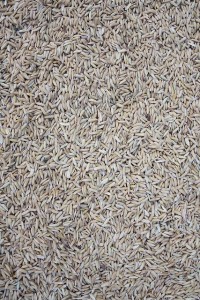Recent scandals show ongoing battle for Chinese food security
A slew of food scandals have occurred in China in recent weeks, highlighting the country’s ongoing challenge with maintaining levels of food safety.
Most recently, a report on broadcaster CCTV2 revealed that a Shanghai producer of steamed buns (mantou) used contained dye and excessive amounts of artificial sweetener in the product, and relabelled for sale buns that had already expired and were returned from local supermarkets. Wang Longxing, director of the Shanghai Food Safety Office, has since apologised for the scandal, insisting that supermarkets should also bear some responsibility for failing to check the quality of the buns before selling them.
Poisonous milk, meat, rice, and then?
Also this month, three children died and 35 others were hospitalised in the northwestern province of Gansu, after drinking what officials suspect was milk tainted with nitrite, an industrial salt. Chinese state media followed up with news from police that two suspects had intentionally poisoned the milk out of anger against the farmer who had produced it.
In March, pork from a subsidiary of China’s largest meat processor, Shuanghui Group in Henan, was found to contain an illegal additive, clenbuterol, used to produce lean meat. Authorities in the province responded by taking 72 people associated with producing, using or selling the additive into custody, closing 16 pig farms and sealing 134 tonnes of pork products. China’s Ministry of Agriculture also pledged that the government would launch a one-year crackdown on the use of illegal additives in pig feed.
China’s rice sector has also faced controversy, with various reports highlighting that as much as 10% of the country’s rice is tainted with heavy metals. In southern China in particular, toxins have been discharged with sewage by mining operations and made their way into rice paddies. A recent expose by Caixinmagazine revealed:
Much of the toxic rice is consumed by farm families who can’t afford the “clean” rice sold in markets. But some rice laced with heavy metals also slips through safety checks and is sold on the general market, experts say, sometimes to consumers in China’s wealthiest cities.
Unsolved melamine milk scandal
Such potentially fatal episodes are not new. Perhaps the most notable scandal came in 2008, when six children died and nearly 300,000 fell ill from powdered milk laced with melamine. An industrial chemical, when added to watered-down milk it can boost readings of protein levels, but also causes kidney stones in infants. The episode prompted Chinese authorities to tighten the regulation of food safety, with the country’s first Food Safety Law taking effect in June 2009. (Incidentally, China’s top legislator yesterday called for a more in-depth and comprehensive enforcement of the legislation).
Responding to the scandal was Zhao Lianhai, whose son fell ill from the tainted milk. He set up a website for other affected parents to exchange details on how to sue the companies involved, and was in 2010 sentenced to 2.5 years in prison for “disturbing social order” as a result of his activism. He was released on medical parole in December of the same year.
In a recent YouTube clip in which he calls for the release of detained artist Ai Weiwei and other victims of China’s recent crackdown on potential dissent, Zhao alludes to the 2008 scandal.
By Marta Cooper. From Global Voices.


























Comments